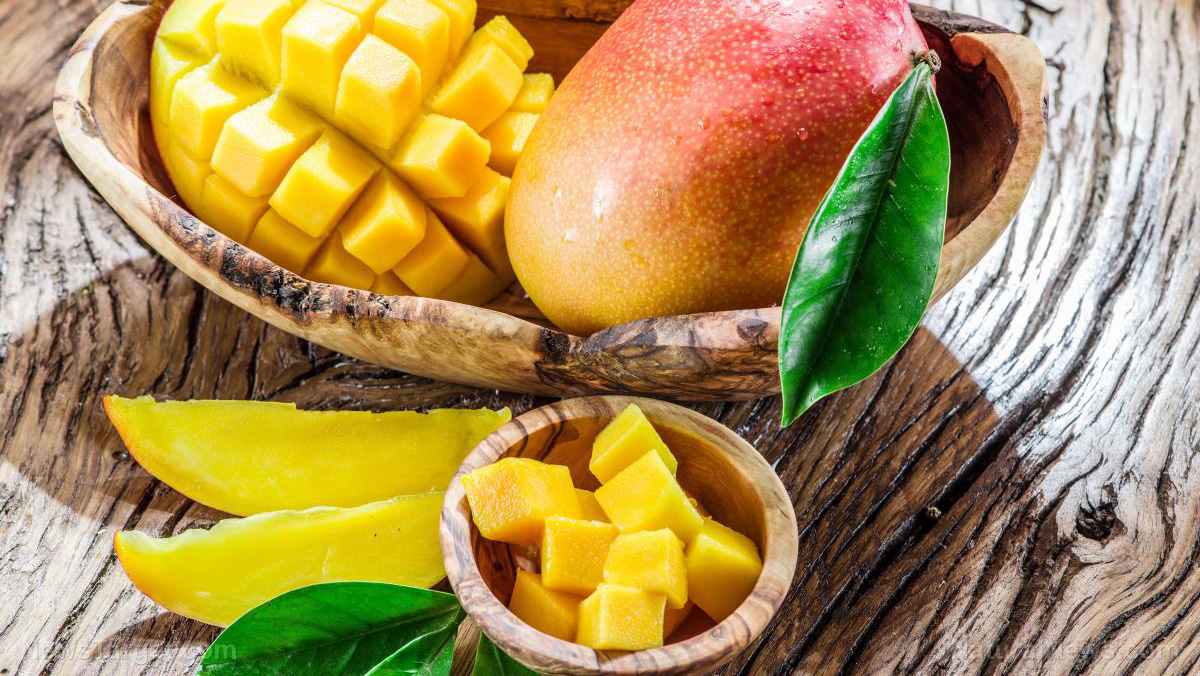Mangoes might be the ultimate superfood for diabetes: New science finds they control both blood sugar and blood pressure
07/30/2017 / By Russel Davis

Eating mangoes may hold potential in preventing metabolic disorders and diabetes, according to four separate studies presented at the 2017 Experimental Biology Conference.
In one of the studies, a team of researchers at the Texas A&M University’s Department of Nutrition and Food Science examined how lean and obese individuals absorbed, metabolized, and excreted gallic acid, galloyl glycosides, and gallotannin following mango consumption for six weeks. According to the researchers, eating mangoes for an extended period can increase the fruit’s anti-inflammatory effects compared with irregular consumption.
In another randomized study, health experts from the same university assessed how mango consumption affects the gut microbiota in both lean and obese individuals. The research team also investigated the fruit’s potential in containing galloyl metabolites and anti-inflammatory activities. It affirmed that galloyl-derivatives from mango may contain therapeutic potential in addressing obesity and metabolic disorder. However, the experts noted that larger-scale studies are warranted to confirm the findings.
In yet another study from the same university, a team of scientists evaluated the metabolic effects of daily mango consumption for six weeks among lean and obese participants. The researchers noted that eating mangoes daily during study period helped reduce blood pressure levels in lean participants. They also found that daily consumption helped obese participants maintain long-term glucose homeostasis. (Related: Mango, the new diabetes and cancer buster)
On the other hand, a study carried out by researchers at the Oklahoma State University assessed the post-prandial responses of otherwise healthy men after eating a high-fat breakfast with or without a mango shake. The experts found that drinking the mango shake made a modest difference in the participants’ post-meal response.
Previous study supports mangoes’ potential in diabetes management
The recent findings were reflective of past research that demonstrated the beneficial effects of mangoes on patients with diabetes. For instance, a study carried out by researchers at the Oklahoma State University’s College of Human Sciences found that mango consumption may lower blood glucose levels in obese adults. As part of the study, the researchers examined 20 obese adults who were instructed to eat 10 grams of freeze-dried mango for 12 weeks.
The study showed that the patients displayed relatively lower blood sugar levels by the end of the study. Male participants also showed marked reductions in waist circumference, the experts noted.
“We are excited about these promising findings for mangoes, which contain many bioactive compounds, including mangiferin, an antioxidant that may contribute to the beneficial effects of mango on blood glucose. In addition, mangoes contain fiber, which can help lower glucose absorption into the bloodstream. Our results indicate that daily consumption of 10 g of freeze-dried mango, which is equivalent to about one-half of a fresh mango (about 100 g), may help lower blood sugar in obese individuals…We believe this research suggests that mangoes may give obese individuals a dietary option in helping them maintain or lower their blood sugar. However, the precise component and mechanism has yet to be found and further clinical trials are necessary, particularly in those that have problems with sugar control, such as diabetics, are necessary,” said lead author Edralin Lucas.
“The results of this study support what we learned in our recent animal model, which found that mango improved blood glucose in mice fed a high-fat diet. Although the mechanism by which mango exerts its effects warrants further investigation, we do know that mangoes contain a complex mixture of polyphenolic compounds. Research has shown that several other plants and their polyphenolic compounds…have a positive effect on [fat] tissue,” Lucas said in a separate article on the Diabetes Self Management website.
Sources include:
Submit a correction >>
Tagged Under:
diabetes, diabetes cure, Diabetes treatment, disease prevention, mango, Mangoes, nutrition, Type 2 Diabetes
This article may contain statements that reflect the opinion of the author
RECENT NEWS & ARTICLES
COPYRIGHT © 2017 REMEDIES NEWS





















